
Franco Modigliani was an Italian-American economist and the recipient of the 1985 Nobel Memorial Prize in Economics. He was a professor at University of Illinois at Urbana–Champaign,Carnegie Mellon University,and MIT Sloan School of Management.

Giuliano Amato is an Italian politician who twice served as Prime Minister of Italy,first from 1992 to 1993 and again from 2000 to 2001. Upon Arnaldo Forlani's death in July 2023,Amato became the country's earliest-serving surviving Prime Minister.
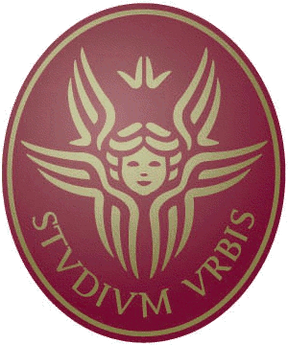
The Sapienza University of Rome,formally the Universitàdegli Studi di Roma "La Sapienza",abbreviated simply as Sapienza ("wisdom"),is a public research university located in Rome,Italy. It was founded in 1303 and is as such one of the world's oldest universities,and with 122,000 students,it is the largest university in Europe. Due to its size,funding,and numerous laboratories and libraries,Sapienza is a global major education and research centre,first ranked in Southern Europe. The university is located mainly in the CittàUniversitaria,which covers 44 ha near the monumental cemetery Campo Verano,with different campuses,libraries and laboratories in various locations in Rome.

The Constitutional Court of the Italian Republic is the highest court of Italy in matters of constitutional law. Sometimes,the name Consulta is used as a metonym for it,because its sessions are held in Palazzo della Consulta in Rome.

Leopoldo Elia was an Italian politician.

Antonio Mario La Pergola was an Italian jurist,Advocate General and later Judge for the European Court of Justice,as well as President of the Venice Commission of the Council of Europe.

Giovanni Battista Conso was an Italian jurist who served on the Constitutional Court of Italy for nine years beginning in 1982,and has served as President of the Accademia dei Lincei from 1989 until his death in 2015.

Sabino Cassese is an Italian jurist,former minister for the public function in the Ciampi government (1993–1994),and judge of the Constitutional Court of Italy (2005–2014).

Francesco Paolo Bonifacio was an Italian politician,jurist and academic. He served as Minister of Justice and President of the Constitutional Court of Italy.
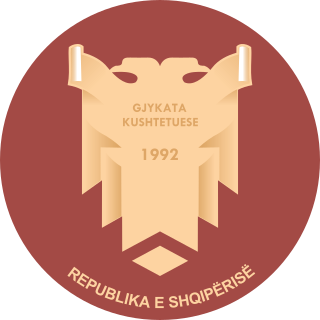
The Constitutional Court of the Republic of Albania is the highest authority in Albania's legal system that defends and assures the respect of the Constitution of Albania.

The Italian electoral law of 2015,also known as Italicum,was an Italian electoral law passed in 2015. The law,which came into force on 1 July 2016,regulated only the election of the Chamber of Deputies,replacing the Italian electoral law of 2005,which had been ruled partly unconstitutional by the Constitutional Court of Italy in December 2013. It provided for a two-round system based on party-list proportional representation,including a majority bonus and a 3% election threshold. Candidates would have run in 100 multi-member constituencies using open lists. The largest party which won over 40% of the vote would automatically win a majority of seats;if no party won 40% of seats,a second round of voting would be held between the two largest parties,with the winner of the second round winning a majority of seats. The name "Italicum" was coined in 2014 by Democratic Party secretary and later Prime Minister of Italy,Matteo Renzi,who was one of the legislation's main proponent.

Franco Gallo is an Italian constitutionalist,former Minister of Finance and former President of the Italian Constitutional Court. He is a member of the Italy–USA Foundation and of the Accademia dei Lincei.

Stefano Rodotà was an Italian jurist and politician.
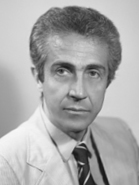
Gino Giugni was an Italian academic and politician. He served as the minister of labor and social security in the period 1993–1994.

Silvana Sciarra is an Italian jurist and academic. She served as a judge of the Constitutional Court of Italy from November 2014 to November 2023 and served as its president from 20 September 2022 to 11 November 2023.
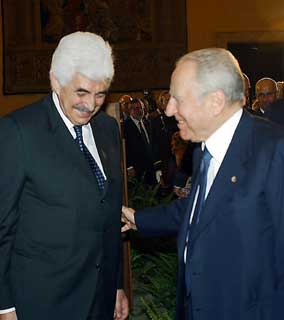
Giuseppe Tesauro was an Italian jurist. He served as Advocate General at the European Court of Justice from 1988 until 1998. Tesauro was President of the Italian Competition Authority between 1998 and 2005. He subsequently was a judge at the Constitutional Court of Italy from 2005 until 2014,serving as its President from July 2014 until the end of his term.

Paolo Rossi was an Italian lawyer and politician.
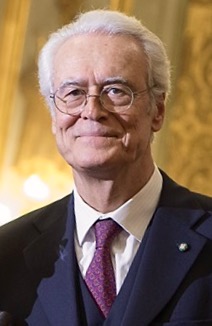
Giulio Prosperetti is an Italian judge and labour law professor at the University of Rome Tor Vergata. He has been Judge of the Constitutional Court of Italy since 21 December 2015.

Augusto Antonio Barbera is an Italian judge and former constitutional law professor at the University of Bologna. In his political career he was member of the Chamber of Deputies between 1976 and 1994 for the Italian Communist Party and later the Democratic Party of the Left. In 1993 he served shortly as Minister without portfolio for relations with Parliament in the government of Prime Minister Carlo Azeglio Ciampi. Barbera has been Judge of the Constitutional Court of Italy since 21 December 2015 and its President since 12 December 2023.
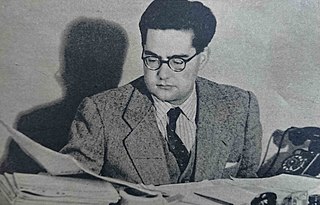
Giovanni Cassandro was an Italian Jurist by training,with a particular focus on Legal history. During the 1930s he worked as a government archivist,first in Venice and then in Naples,which gave him the opportunity to develop an abiding specialism in the wider history of Italy,especially with regard to the south. He also took a growing interest in politics,becoming a liberal activist during the closing years of the dictatorship and a member of the team around Benedetto Croce that re-established the Liberal Party after the arrest of Mussolini in July 1943. He served as party secretary in 1944 and again during 1946/47. Cassandro remained active in national politics till 1947,when he accepted a professorship in Legal history at the University of Bari. He later moved north,taking a series of professorships straddling the interface between Law and History at the Sapienza University of Rome. Between 1955 and 1967 he combined his university work with a position as one of the fifteen judge at the newly established Constitutional Court in Rome.




















